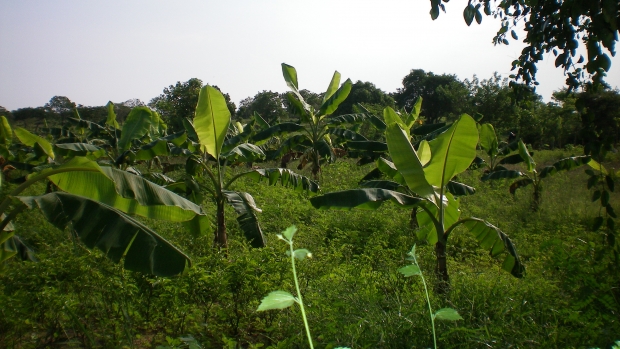Grants :: Small Grant Facilities :: A participatory mangrove management programme
A participatory mangrove management programme

Home gardens with plants to supply firewood around Rekawa, Sri Lanka © RMahindapala , 2009
Objectives
The objective of this project was to increase community knowledge about mangroves and the alternatives to their exploitation, thereby encouraging future conservation of mangrove ecosystems.
Background
This project was implemented in the villages around Rekawa lagoon. Local people in this area are generally unaware of the environmental values of mangroves, and have severely degraded the lagoon’s mangrove forests through firewood collection and other uncontrolled daily use. An urgent need exists to raise awareness of the environmental values of mangroves, in particular among the younger generation of villagers.
Target beneficiaries
Fifty families living beside Rekawa lagoon.
Outputs
- Establishment of a mangrove education centre with support from the Ruhuna University Agriculture Unit, housing a collection of mangrove tree species and related plants.
- Creation of 50 home gardens with 1,500 plants to supply firewood (species used: Casuarina equisetifolia, Bambusa vulgaris, Sonneratia caseolaris and Terminalia catappa).
- Delivery of three awareness programmes for schoolchildren.
Accomplishments and challenges
The project helped to change attitudes among Rekawa residents through awareness programmes on the importance of mangroves. The new home gardens are providing beneficiary families with firewood, thus reducing pressure on mangroves, and the foliage from plants in the home garden can also be used as organic manure to increase soil nitrogen levels.
The new mangrove centre now also provides a research base for those interested in studying and practising mangrove conservation.
Contributions to cross-cutting themes
Gender equality
This project targeted both men and women as beneficiaries.
Lessons Learned
Awareness programs and education made it easier to achieve project outputs, as knowledge is the key to protection. Schoolchildren are the best medium for communicating conservation messages to the community.
Although the mangrove centre is being temporarily maintained by SEEDO (Social, Economic and Environmental Development Organization), permanent staff are needed to look after the centre and its visitors. A short-term project such as this one cannot achieve long-term results on its own – further support is needed to ensure sustainability.
Project Facts
Country
Location
Rekawa, Ussangoda and Kalametiya (RUK) area, Sri Lanka
Topic
Duration
1st Feb 2009 to 30th Nov 2009
MFF Grant Amount
US$4,395
Implementing Partner
SEEDO Sri Lanka
130 Monaragala Road,
Badalkumbura,
Sri Lanka
Tel: +94 55 2250301
